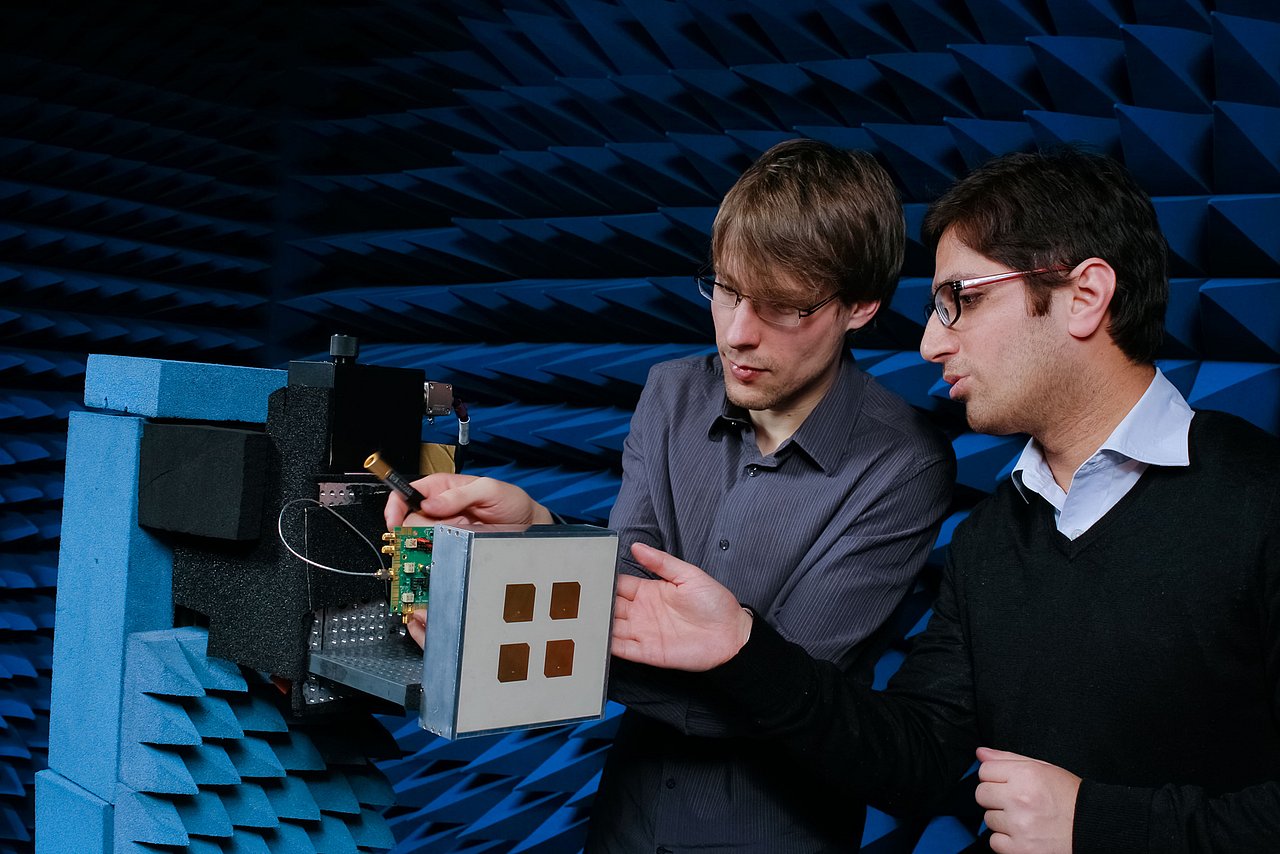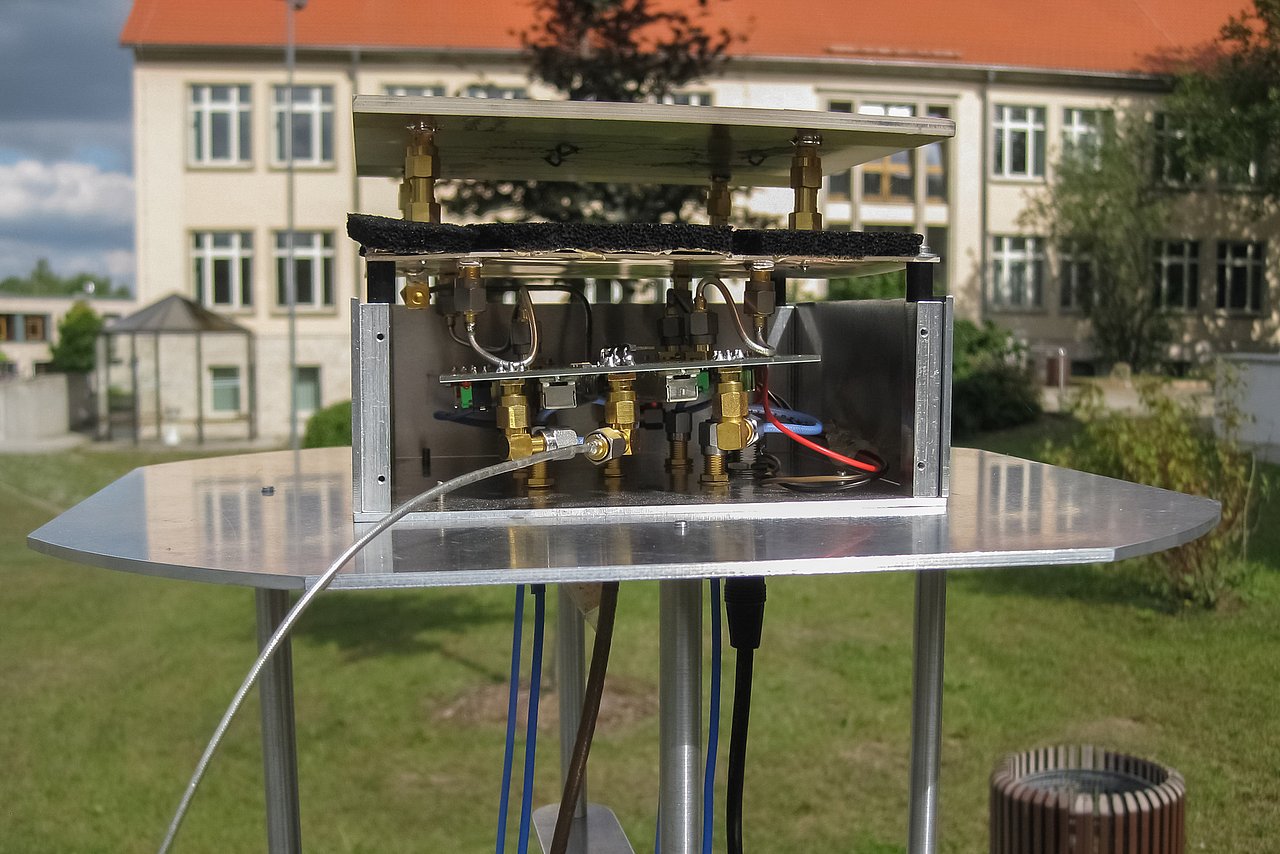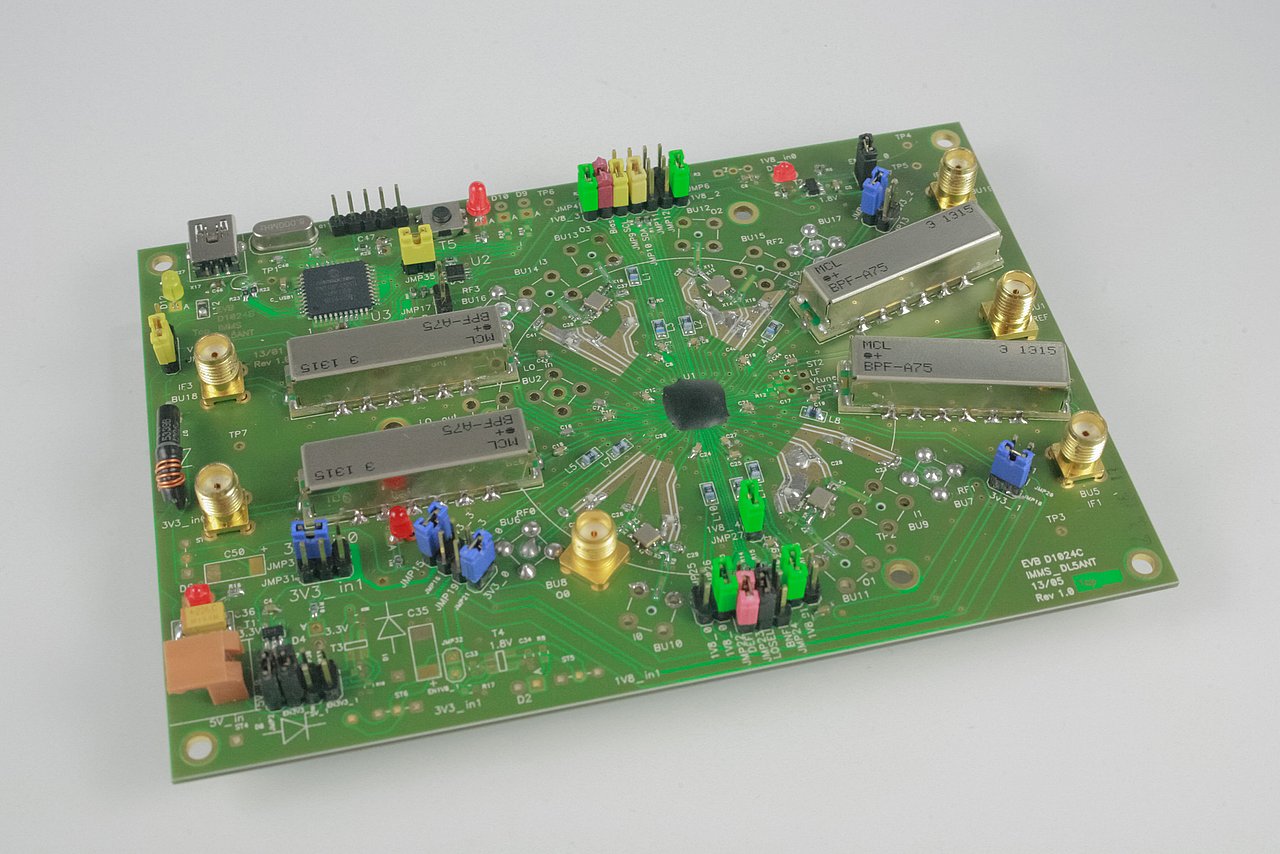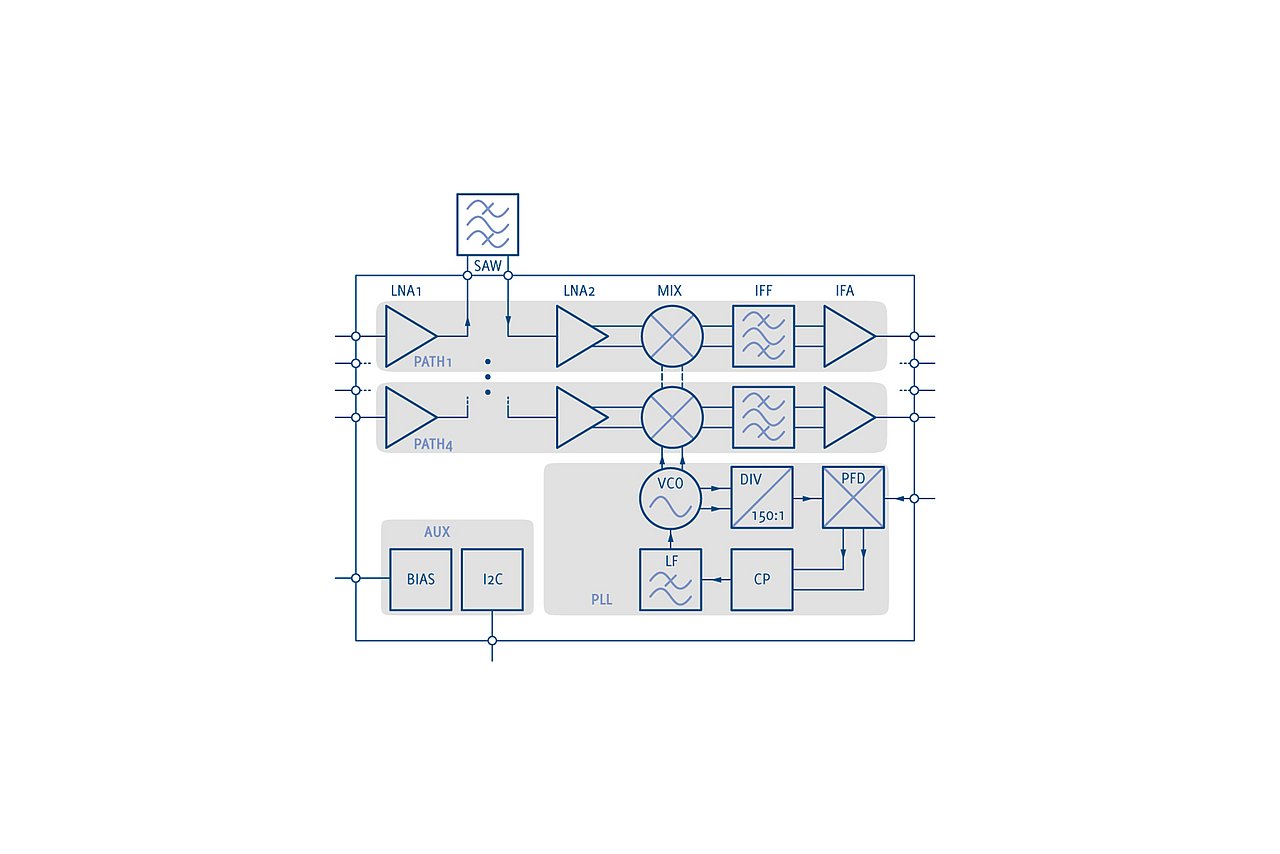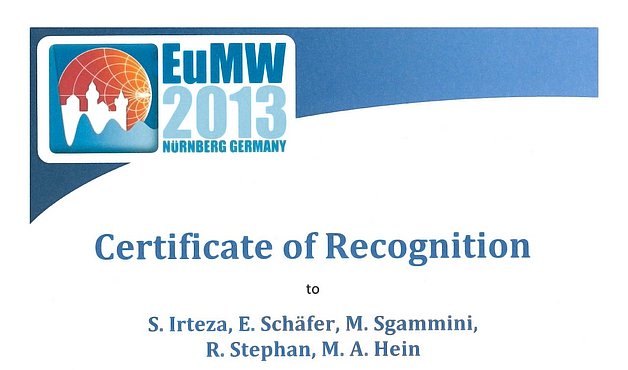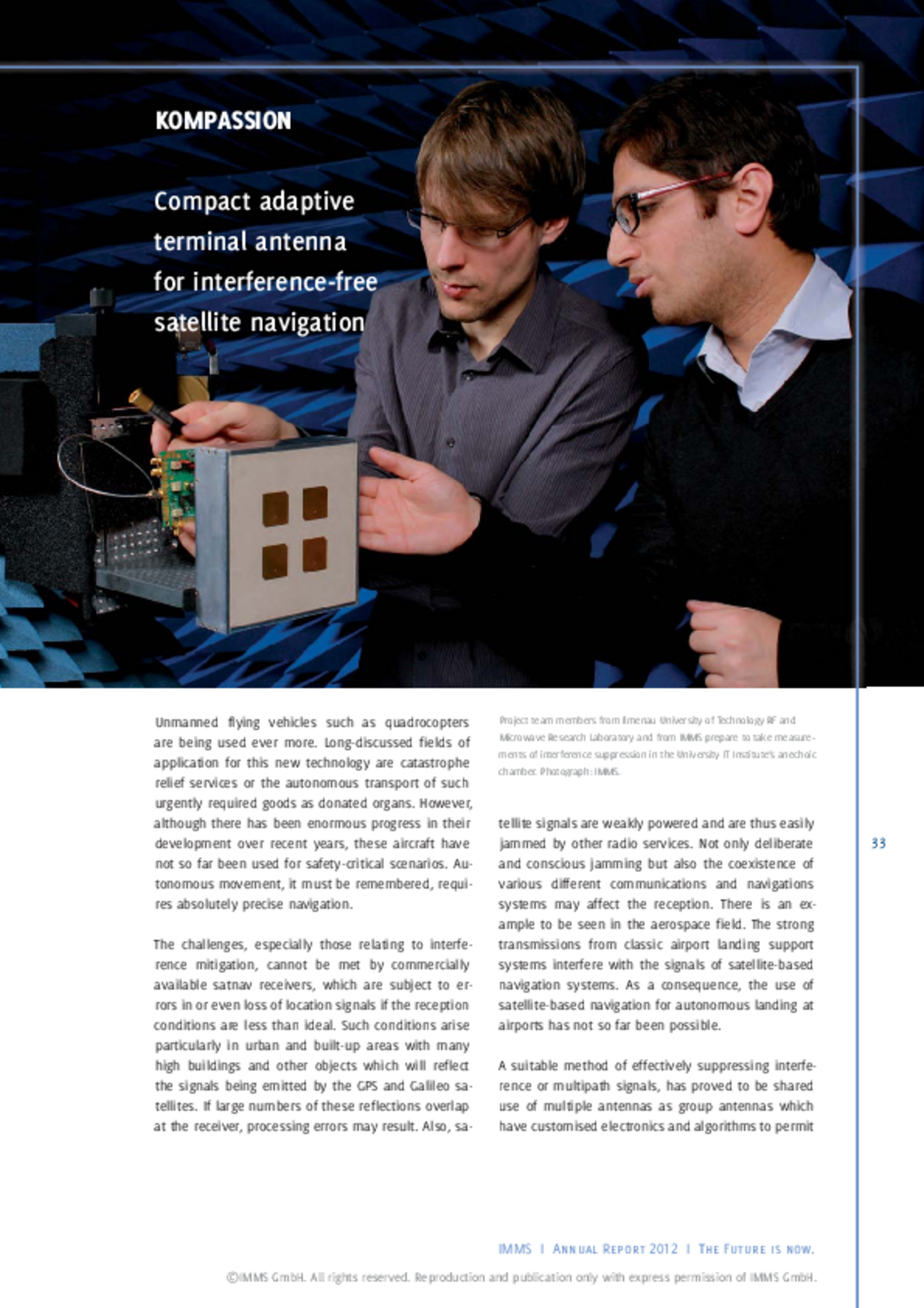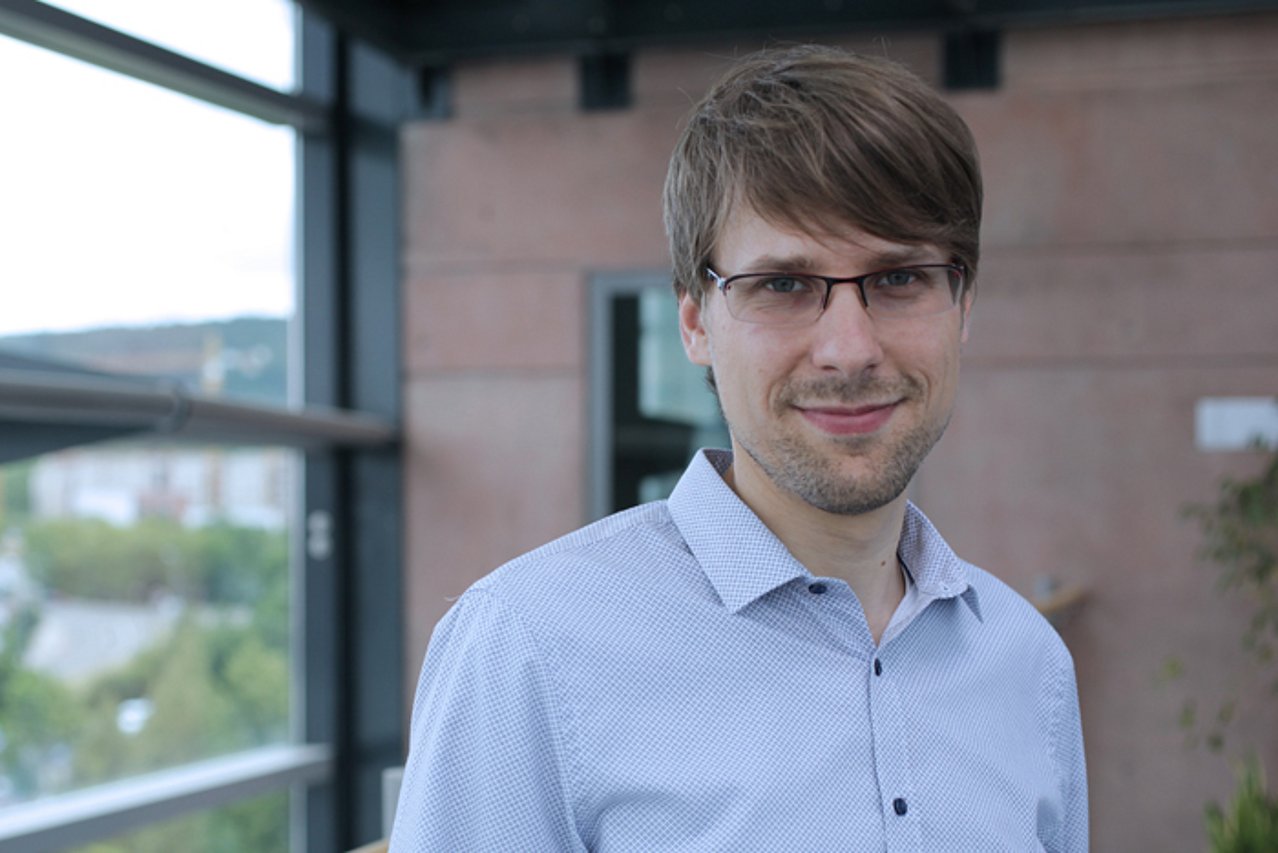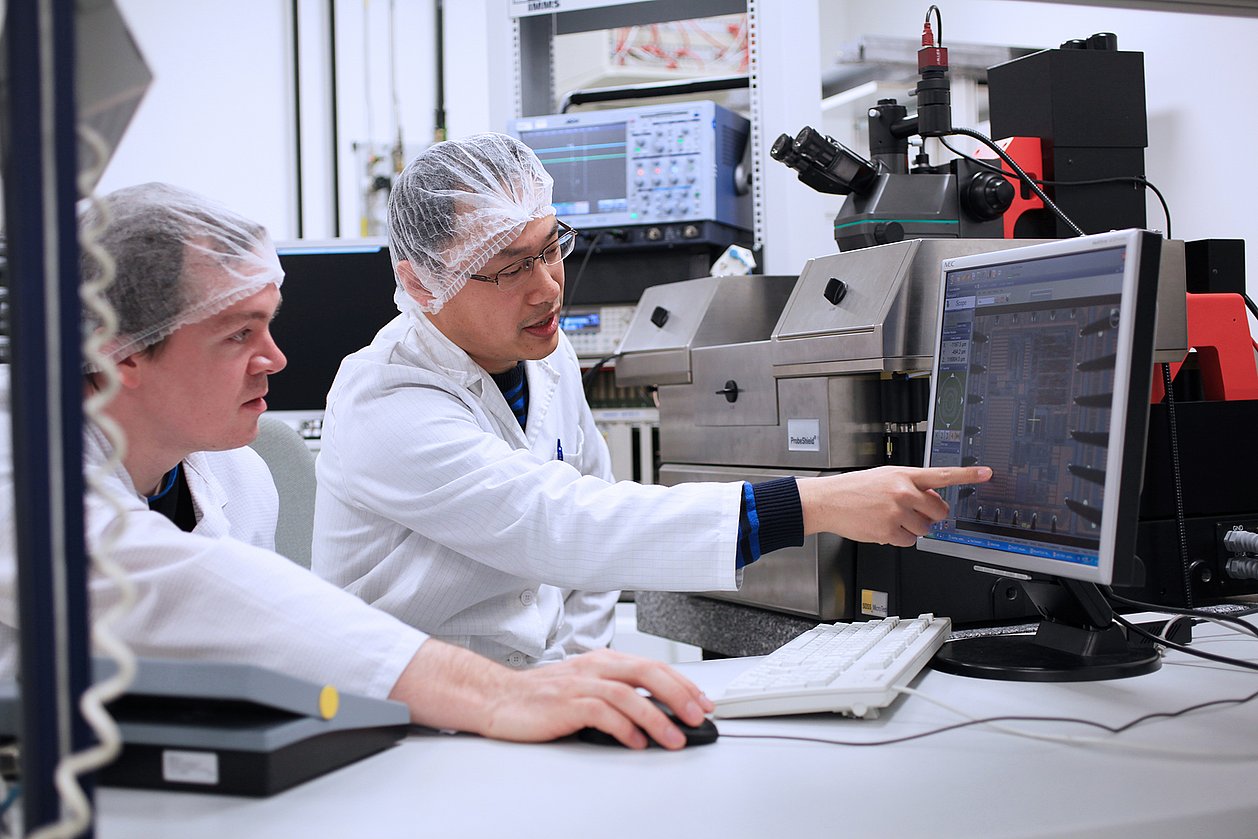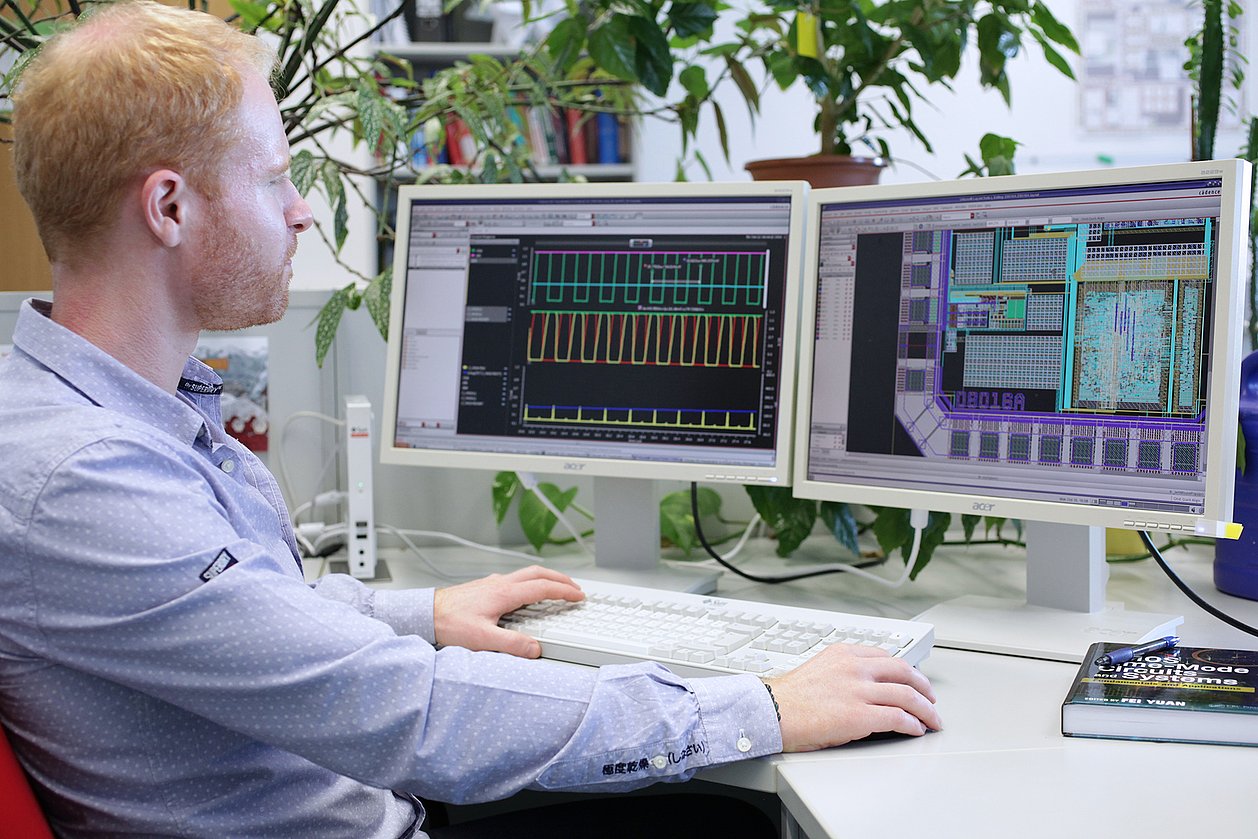Project KOMPASSION
In the project compact solutions for interference-free and thus reliable satellite navigation have been developed.
Autonomous movement of unmanned flying vehicles in an urban environment requires absolutely precise navigation. This challenge cannot be met by commercially available single-antenna satnav receivers, which are subject to errors in or even loss of location signals.
Therefore, IMMS and the project partners conducted research on new designs, technology and algorithms to make adaptive group antennas more compact. Antennas of this type fulfil the high requirement for interference robustness, which is necessary in safety-critical situations where unmanned aerial vehicles are used. They have, however, been too large and heavy to date for use in small robots or mobile devices. The developed receiving unit is only one quarter the size of a conventional group antenna but has the same number of individual elements and demonstrates the applicability of the signal treatment developed.
IMMS developed the receiver frontend circuits to link the group antenna and the digital processing electronics. The Institute was contributing its competencies in signal processing and system integration, in particular in microelectronic integration of analogue and radio frequency circuits. IMMS had to meet the challenge of finding a particularly low-noise implementation of signal processing which is still highly resistant to the interference level and of integrating onto a single shared silicon chip several reception channels which work together coherently.
Acronym / Name:
KOMPASSION / Compact adaptive terminal antenna for interference-free satellite navigationDuration:2010 – 2013
Application:
|transport| logistics| consumer electronics| autonomous navigation| safety-critical navigation| airport landing support systemsResearch field:Integrated sensor systems
Related content
A Four-Channel GNSS Front-End IC for a Compact Interference- and Jamming-Robust Multi-Antenna Galileo/GPS Receiver
Eric Schäfer1. Safwat Irteza2. André Jäger1. Björn Bieske1. André Richter1. Muhammad Abdullah Khan1,3. Muralikrishna Sathyamurthy1. Sebastian Kerkmann1. Alexander Rolapp1. Eckhard Hennig1. Ralf Sommer1.7th ESA Workshop on Satellite Navigation Technologies & European Workshop on GNSS Signals and Signal Processing (NAVITEC 2014), Session B6 - Robust GNSS Receiver Design, ISBN: 978-1-4799-6529-8, Noordwijk, Niederlande
1IMMS Institut für Mikroelektronik- und Mechatronik-Systeme gemeinnützige GmbH, Ilmenau, Germany. 2RF and Microwave Research Laboratory, Ilmenau University of Technology, Ilmenau, Germany. 3now with RWTH Aachen University, Aachen, Germany.Impact of Polarization Impurity on Compact Antenna Array Receiver for Satellite Navigation Systems
Safwat Irteza1. Eric Schäfer2. Matteo Sgammini3. Ralf Stephan1. Matthias A. Hein1.in 43rd European Microwave Conference (EuMC), Nuremberg, Germany, Oct. 2013, pp. 346-349, ISBN 978-2-87487-031-6
1RF and Microwave Laboratory University of Technology Ilmenau. 2IMMS Institut für Mikroelektronik- und Mechatronik-Systeme gemeinnützige GmbH, Ilmenau. 3German Aerospace Center (DLR) Institute for Communication and Navigation.ArticleFour-Element Compact Planar Antenna Array with Integrated Decoupling and Matching Network for Robust Satellite Navigation Systems
Safwat Irteza1. Eric Schäfer2. Matteo Sgammini3. Ralf Stephan1. Matthias A. Hein1.in 6th European Conference on Antennas and Propagation (EuCAP), Gothenburg, Sweden, Apr. 2013, pp. 21-25, ISBN 978-88-907018-3-2
1RF and Microwave Laboratory, University of Technology Ilmenau. 2IMMS Institut für Mikroelektronik- und Mechatronik-Systeme gemeinnützige GmbH, Ilmenau. 3German Aerospace Center (DLR), Institute for Communication and Navigation.ArticleNoise Characterization of a Multi-Channel Receiver Using s Small Antenna Array with Full Diversity for Robust Sattelite Navigation
Safwat Irteza1. Eric Schäfer2. Christian Vollmer2. Matteo Sgammini3. Ralf Stephan1. Eckhard Hennig2. Matthias A. Hein1.Wireless Information Technology and Systems (ICWITS), 2012 IEEE International Conference on, DOI: 10.1109/ICWITS.2012.6417676, IEEE Xplore Digital Library, ieeexplore.ieee.org/Xplore/, Page(s): 1-4
1RF and Microwave Laboratory, University of Technology Ilmenau, Germany. 2IMMS Institut für Mikroelektronik- und Mechatronik-Systeme gemeinnützige GmbH, Ilmenau. 3German Aerospace Center (DLR), Institute for Communication and Navigation, Germany.Article
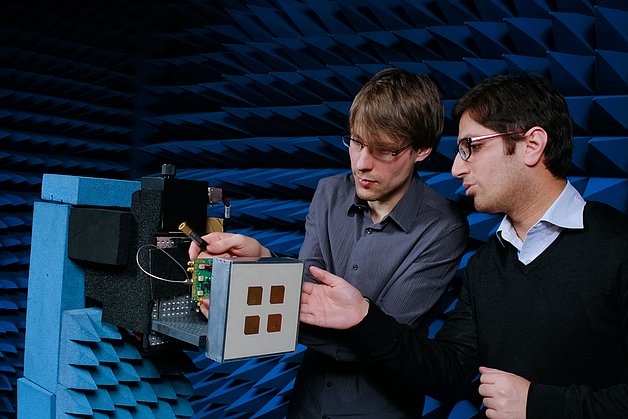
Press release,
Best paper nomination at the European Microwave Conference 2013
Nürnberg/Ilmenau, 16/10/2013. At the European Microwave Conference 2013 in Nürnberg, Germany, the presented work on the „Impact of Polarization Impurity on Compact Antenna Array Receiver for Satellite Navigation Systems“ was nominated for the Best Paper Award. The topic was part of the three-year research project “KOMPASSION”, which ended on 30/09/2013.
Project
In this project, the German Aerospace Centre, Ilmenau University of Technology, RWTH Aachen, and IMMS were working on new designs,…
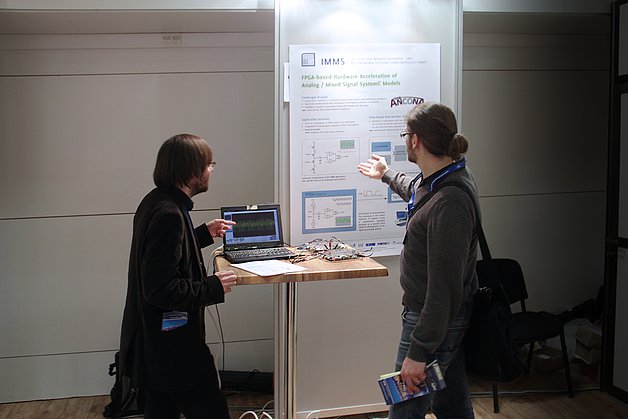
Event,
2015 Workshop on RFI Threats to GNSS
30 Sep 2015, Session 4, Aldenhoven: Live demo of a compact adaptive terminal antenna for interference-free satellite navigation developed in the KOMPASSION project
Contact
Contact
Eric Schäfer, M. Sc.
Head of Microelectronics / Branch Office Erfurt
eric.schaefer(at)imms.de+49 (0) 361 663 25 35
Eric Schäfer and his team research Integrated sensor systems, especially CMOS-based biosensors, ULP sensor systems and AI-based design and test automation. The results are being incorporated into research on the lead applications Sensor systems for in-vitro diagnostics and RFID sensor technology. It will assist you with services for the development of Integrated circuits and with IC design methods.
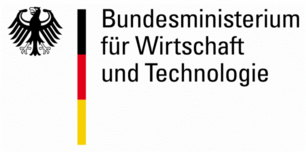
Funding
This work has been carried out in the research project KOMPASSION that has been supported by the German Aerospace Center (DLR) on behalf of the German Federal Ministry of Economics and Technology under grant 50 NA 1007 and 50 NA 1009.


